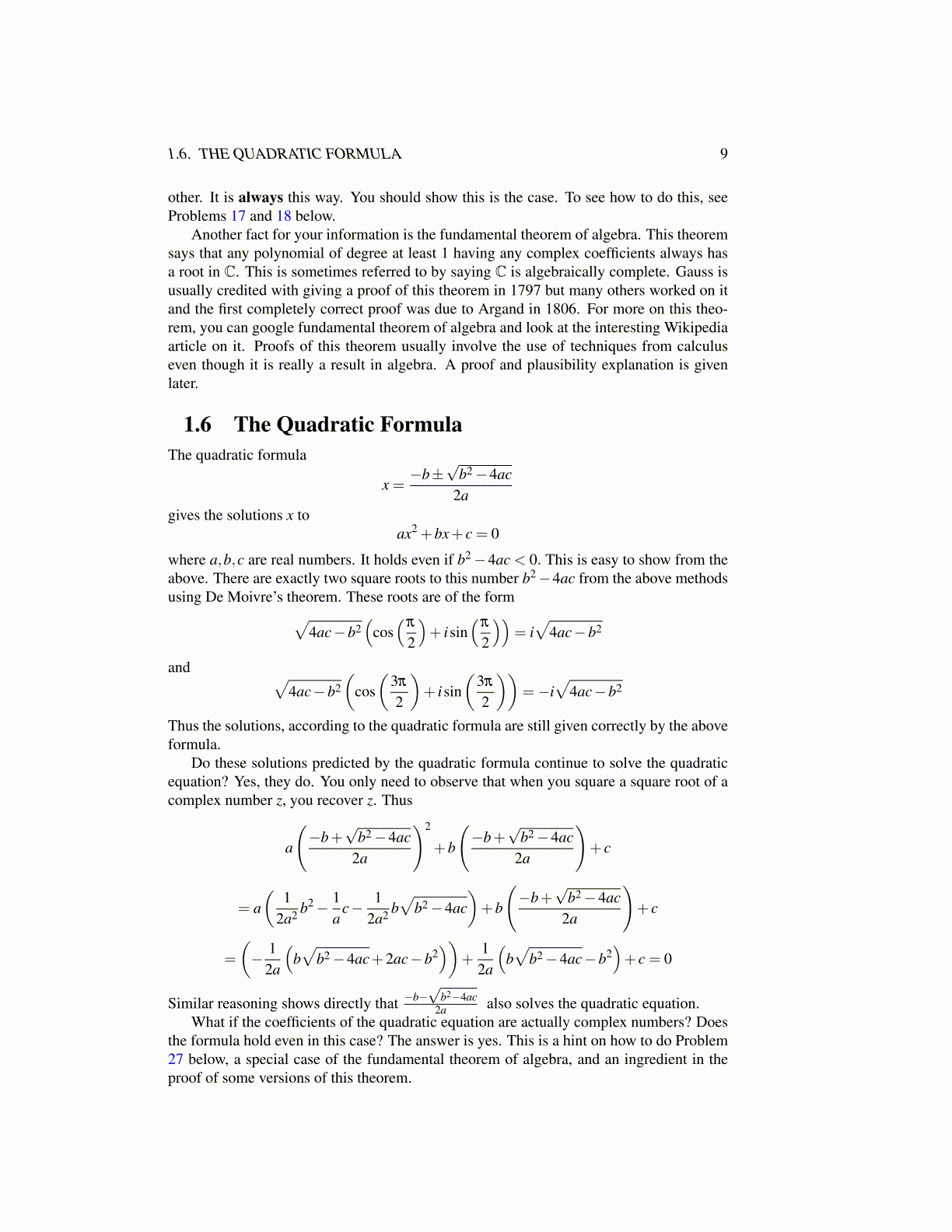
1.6. THE QUADRATIC FORMULA 9
other. It is always this way. You should show this is the case. To see how to do this, seeProblems 17 and 18 below.
Another fact for your information is the fundamental theorem of algebra. This theoremsays that any polynomial of degree at least 1 having any complex coefficients always hasa root in C. This is sometimes referred to by saying C is algebraically complete. Gauss isusually credited with giving a proof of this theorem in 1797 but many others worked on itand the first completely correct proof was due to Argand in 1806. For more on this theo-rem, you can google fundamental theorem of algebra and look at the interesting Wikipediaarticle on it. Proofs of this theorem usually involve the use of techniques from calculuseven though it is really a result in algebra. A proof and plausibility explanation is givenlater.
1.6 The Quadratic FormulaThe quadratic formula
x =−b±
√b2−4ac
2agives the solutions x to
ax2 +bx+ c = 0
where a,b,c are real numbers. It holds even if b2−4ac < 0. This is easy to show from theabove. There are exactly two square roots to this number b2−4ac from the above methodsusing De Moivre’s theorem. These roots are of the form√
4ac−b2(
cos(
π
2
)+ isin
(π
2
))= i√
4ac−b2
and √4ac−b2
(cos(
3π
2
)+ isin
(3π
2
))=−i
√4ac−b2
Thus the solutions, according to the quadratic formula are still given correctly by the aboveformula.
Do these solutions predicted by the quadratic formula continue to solve the quadraticequation? Yes, they do. You only need to observe that when you square a square root of acomplex number z, you recover z. Thus
a
(−b+
√b2−4ac
2a
)2
+b
(−b+
√b2−4ac
2a
)+ c
= a(
12a2 b2− 1
ac− 1
2a2 b√
b2−4ac)+b
(−b+
√b2−4ac
2a
)+ c
=
(− 1
2a
(b√
b2−4ac+2ac−b2))
+1
2a
(b√
b2−4ac−b2)+ c = 0
Similar reasoning shows directly that −b−√
b2−4ac2a also solves the quadratic equation.
What if the coefficients of the quadratic equation are actually complex numbers? Doesthe formula hold even in this case? The answer is yes. This is a hint on how to do Problem27 below, a special case of the fundamental theorem of algebra, and an ingredient in theproof of some versions of this theorem.